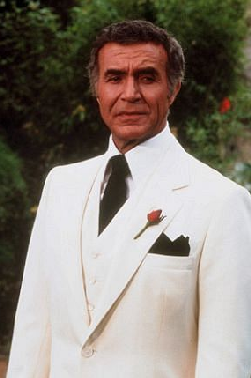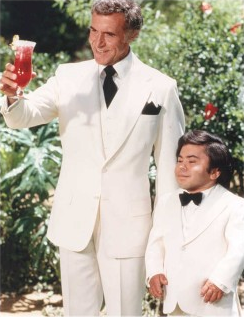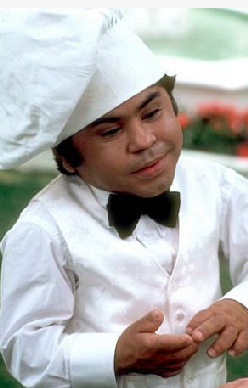When ABC
realized it had a major hit with Love
Boat, it immediately began developing a second program using a similar
theme. That program was
Fantasy Island, and,
scheduled right after Love Boat on Saturday night, it soon became an
equally big hit.
Both programs
were episodic, consisting of several different stories
each week played out against a common background. The backdrop of Fantasy
Island was romantic indeed: a remote island resort, where each visitor could
have one lifelong dream come true. A homely young man wanted to become, during
his stay, a sex symbol to beautiful girls (bikini-clad beauties abounded on
Fantasy Island); a
frustrated salesman whose career was going nowhere wanted to score the
business coup of his life; a henpecked family man wanted a weekend of respect
from his clan. Many of the stories involved glamour and excitement for
ordinary people whose lives normally had none, and ABC obviously felt that
viewers would relate this to their own lives. There was
some element of danger, or a twist of fate, but everything always worked
out for the best.
Overseeing
the two or three little dramas each week was the island's owner,
the suave and slightly mysterious Mr. Roarke, and his midget helper Tattoo (replaced in 1983 by Lawrence).
In later seasons, Roarke became increasingly mysterious, in fact, dispensing magic
spells and potions, calling up events from the past and future, and even
doing battle with the devil. The plots got even more fanciful. Visitors on the island were played by a
wide range
of guest stars, among them Henry Gibson, Georgia Engel, Christopher George, Marcia Strassman, Dennis James, and Roddy McDowall (as Mephistopheles).
Mr. Roarke's God-daughter Julie was a regular for a single season.
Fantasy
Island
was originally filmed at a real tropical paradise, a public
park called the Arboretum, 25 miles from Los Angeles.





